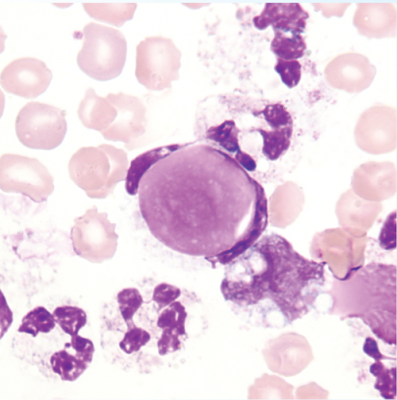
A chronic and complex autoimmune disease, Lupus can affect any part of the body causing widespread inflammation and tissue damage in the affected organ. The most commonly impacted areas are:
Below are some basic facts about the disease, its symptoms, diagnosis, and treatment.


The cause of Lupus remains unknown, but there is solid evidence that genetics, epigenetics (changes in chromosomes that affect gene activity), environmental factors, viruses and infections play a role.
Further study of these variables will improve our understanding of causes, which should lead to improved diagnosis, prognosis, prevention and treatment.
The most common type of lupus is called systemic Lupus Erythematosus (SLE), which affects many parts of the body. Other types of lupus are:
– Cutaneous Lupus, which causes a rash or lesion on the skin, usually when exposed to sunlight.
– Drug-induced Lupus, similar to SLE, but this is caused by an overreaction to certain medications. Symptoms usually disappear once the medicine is stopped.
– Neonatal Lupus, which occurs when an infant acquires autoantibodies from its mother with SLE (autoantibodies are immune proteins that mistakenly target and react to a person’s own tissues or organs). While skin, liver and blood problems resolve within six months, the most serious problem — congenital heart block — requires a pacemaker.
People with SLE, the most common form of lupus, may experience — with varying severity — fatigue, pain or swelling in joints, skin rashes and fevers.
There is no single test to definitively diagnose Lupus. Unfortunately, it could take months or even years to be sure. Typically, your doctor will conduct a complete medical history and physical exam, including blood tests. The doctor may also perform skin and kidney biopsies (extracting tissue samples that are then examined under a microscope) to make a diagnosis.
According to the most recent research, genes play an large role and may be a risk factor, but genes alone do not determine who gets Lupus. It’s likely that many factors trigger the disease.
The most serious health risks are cardiovascular disease, kidney disease and stroke.
Specifically, people with lupus are at an increased risk for atherosclerosis (the deposition of fats and cholesterol [plaque] along the lining of the arterial wall). In some people, inflammation can occur in the heart itself (myocarditis and endocarditis) or the membrane that surrounds it. Endocarditis can damage heart valves, which can result in heart murmurs. When the disease affects the kidneys, it’s called lupus nephritis, and patients generally require intensive drug treatment to prevent permanent damage. Lupus also may attack the brain or central nervous system, which can cause seizures or stroke.
You may need to see different kinds of doctors to treat the many symptoms of Lupus. Once you’re diagnosed, your primary physician for Lupus is usually a Rheumatologist, who treats arthritis and other diseases that cause swelling in the joints.
The Rheumatologist may then send you to a clinical immunologist for treating immune system disorders, a nephrologist (kidney disease), a hematologist (blood disorders), a dermatologist (skin diseases), a neurologist (the nervous system), a cardiologist (heart and blood vessel problems) and an endocrinologist (glands and hormones).
A treatment plan may aim to:
Researchers have made great progress in identifying people at risk for lupus and the molecular markers (something found in cells that can predict lupus flares) that appear before the onset of symptoms. From these advances, scientists hope to generate early intervention or even disease-prevention strategies. For people with established lupus, research is focused on designing new clinical trials that test drug candidates, which, if successful, could be combined with existing therapies.
The Ladies of Lupus Foundation is funding the most innovative research in the world, with the hope of finding better diagnostics, improved treatment and, eventually, a cure.
It requires ongoing management and support. If you or a loved one has lupus or suspects its presence, seeking prompt medical attention and support from our organization can make a significant difference in your lupus journey.
The Ladies of Lupus Foundation is here to empower you through knowledge, community, and a fresh perspective on lupus care. Lupus is our challenge, and together, it’s our opportunity for change.

All rights reserved. Funding raised is utilized for education, research and is also donated to the Hospital for Special Surgery Rheumatology Dept: Lupus Research and Care Facility in New York.


All rights reserved. Funding raised is utilized for education, research and is also donated to the Hospital for Special Surgery Rheumatology Dept: Lupus Research and Care Facility in New York.
